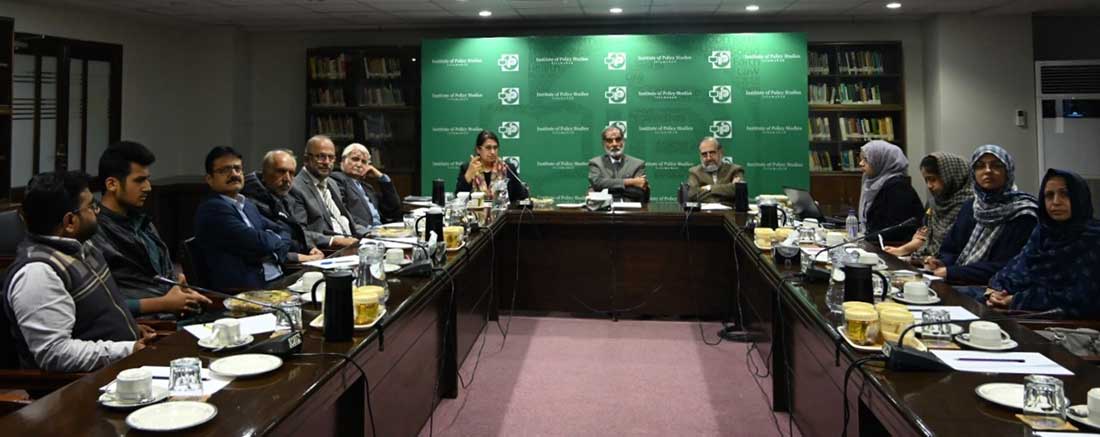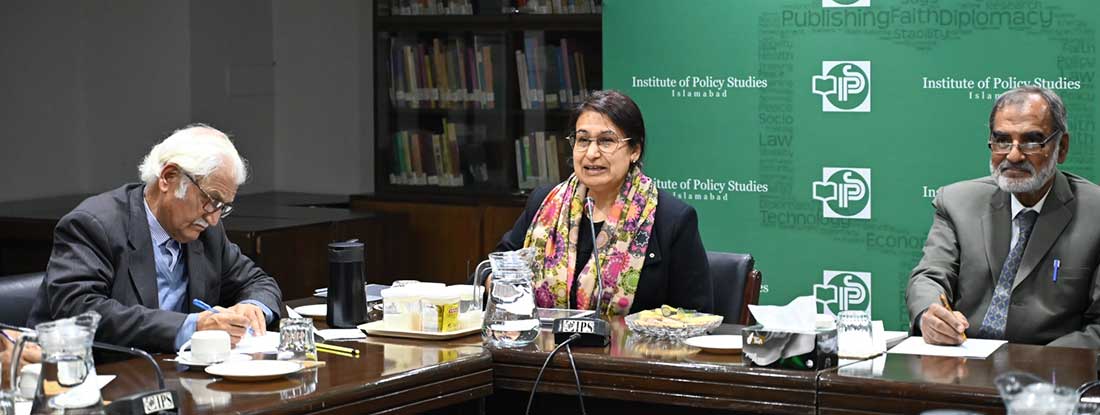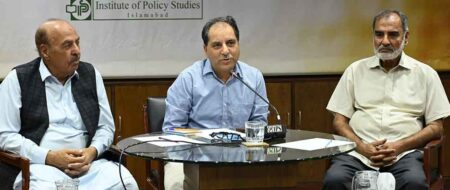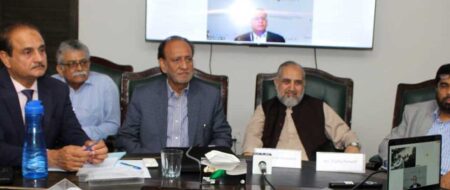‘Terrephilia Retributa’ in Pakistan-Afghanistan Relations’
True implementation of 25th Amendment can bridge integration gap of ex-FATA: Dr Farhat Taj
Implementation of the 25th Amendment in letter and spirit stands as a transformative stride toward the integration of the former Federally Administered Tribal Areas (FATA) into the national mainstream. This signifies a pivotal shift, heralding socio-political empowerment, representation for the region’s populace, and strengthening Pakistan’s management of ontological insecurities.
Dr Farhat Taj, associate professor, University of Tromsø, Norway, said this during a presentation and group discussion on her drafted research article, titled ‘The ‘Terrephilia Retributa’ in Pakistan-Afghanistan Relations’, organized at IPS on December 27, 2023.
The presentation was followed by a discussion by Khalid Rahman, chairman IPS, Farhatullah Babar, former senator, Dr Lutfur Rehman, an expert on FATA affairs, Ambassador (r) Syed Abrar Hussain, former ambassador of Pakistan to Afghanistan and vice chairman, IPS, Prof Dr Fakhr-ul-Islam, Former Director Pakistan Study Center at the University of Peshawar, Ambassador (r) Ayaz Wazir, and Brig. (r) Said Nazir, defense analyst.

In the context of the Pakistan-Afghanistan identity clash, the research article explores which state has ‘better’ ontological (in)security management routines. Presenting her findings, Dr Farhat maintained that despite their peculiar strengths and inevitability for each other, Pakistan-Afghanistan relations are girdled by ‘problems within the problems’ dilemma, and traditional IR and political science theories do not work for a comprehensive understanding of this relationship.
She discussed Pak-Afghan relations and the management of their respective ontological (in)securities within the framework of complexity theory. She concluded that Afghanistan’s management routines or negative feedback loops revolved around its non-acceptance of the Durand Line as the international border, its ambiguous stance on the Pashtun area of Pakistan, and certain ontological (cultural) narratives.
Against this, Pakistan’s most robust and stable negative feedback loop lies in the integration of Pashtuns from the settled areas into the state structure, coupled with their socio-economic ties in other provinces. She said this holds hope for Pakistan if it expands the integration to the tribal area.
Commenting on the research findings, Farhatullah Babar said that Pakistan should integrate the Pashtun, work for their betterment, civilianize ex-FATA, and implement the 25th Amendment in letter and spirit as part of its management routine. This will lay the groundwork for fostering a move towards inclusive development, bridging disparities, and promoting harmonious integration within the broader fabric of Pakistan’s landscape.
This was endorsed by speakers who stressed that a major factor creating the issues of integration and ontological (in)securities is the incomplete implementation of the 25th Amendment. Furthermore, the speakers highlighted the need to create more stakes for better management and engagement of Pashtuns in the decision-making process. Along with this, image building as a negative feedback loop should also be accommodated, including a policy of appeasement of Pashtuns.
In his concluding remarks, Khalid Rahman maintained that the issue of management of ontological in(securities) of Pak-Afghan relations should consider factors in a larger framework, i.e. long historical background, a considerable population of non-Pashtun people in Afghanistan, the question mark of Pakistan and Afghanistan state identities, the impact and authenticity of social media discussions, and the interests and stakes of Pashtun elites.












